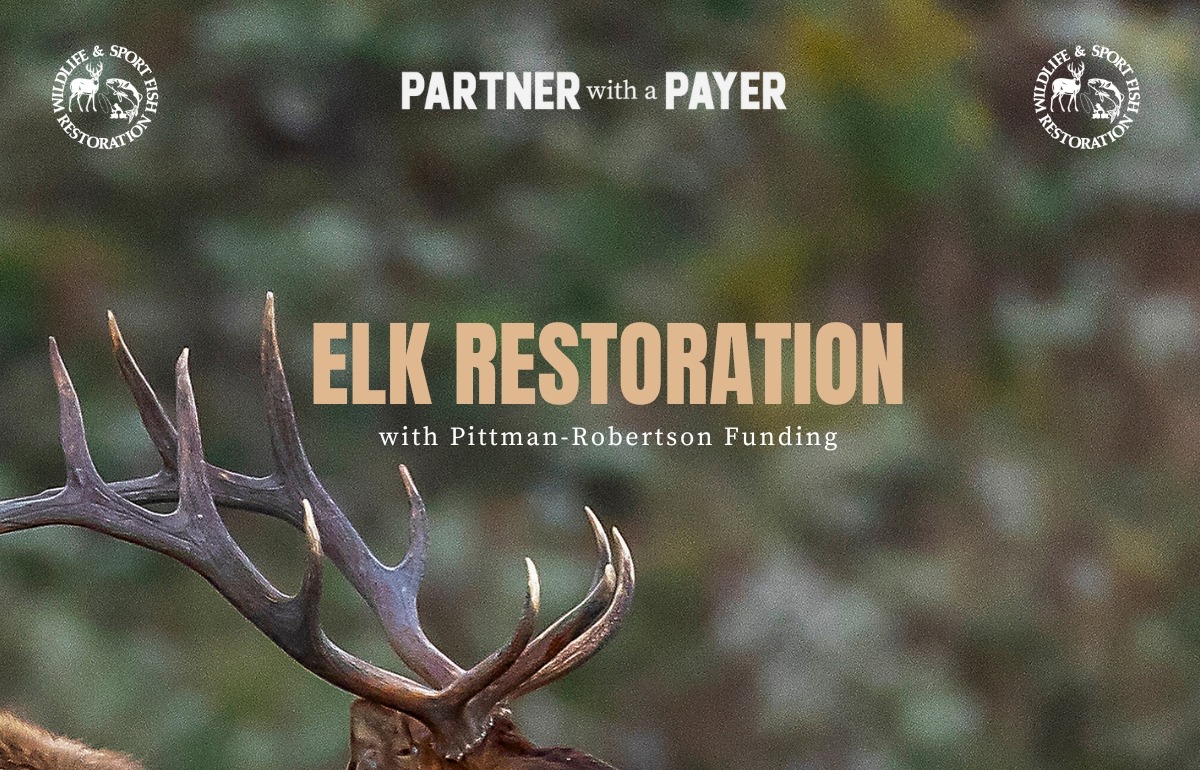 Back to News
Back to News
Image Source: Colorado Parks and Wildlife Commission
April 5, 2024
State Fish & Game Departments Are Changing and That Should Concern You
Today’s state wildlife agencies are changing. Some critics might call it metastasizing and it could spell trouble ahead for the hunting traditions Americans have enjoyed for centuries.
Colorado’s Parks and Wildlife Commission (CPW) recently confirmed two new appointees to the state agency that oversees and administers hunting and wildlife regulations. The concern is that these new commissioners have anti-hunting activist backgrounds. Both were confirmed by Colorado’s Senate after being nominated by Gov. Jared Polis. A third nominee was held over until May 9, after the state’s legislature ends the legislative session.
The two appointees confirmed to their positions are Jessica Beaulieu and John (Jack) Murphy. They will serve terms until July 1, 2027. The concern is that both aren’t hunters at all. In fact, they’re the polar opposite. Both have previously held positions with anti-hunting organizations. Now, they’re two of the 11 voting members of CPW that will administer wildlife, hunting and conservation policies in Colorado.
Anti-Hunting Activist
Murphy’s background advocating for hunting conservation is non-existent. He co-founded Urban Wildlife Rescue, which provides “humane solutions” to wildlife conflicts, wildlife education and wildlife rehabilitation, according to MeatEater. He has also served on the Colorado Nongame Conservation and Wildlife Restoration board and the board of Colorado Animal Protectors.
Beaulieu will serve as representative for Colorado’s outdoor recreation and parks utilization. That’s not exactly her background though. She manages the Animal Law Program at the University of Denver’s Strum College of Law. She was also a fellow at the Center for Biological Diversity (CBD). If that sounds familiar, it’s because CBD is the anti-hunting group infamous for the “sue and settle” scheme with the U.S. Fish and Wildlife Service (USFWS). In 2021, CBD sued the Trump administration over the 2.3 million acre expansion for hunting and fishing on National Wildlife Refuges (NWRs). They alleged that expanding hunting and fishing would harm endangered species that live on or around the refuges.
MeatEater reported that Beaulieu told Colorado’s Senate that she’s not anti-hunting but admittedly lacks the statutory qualifications to be a wildlife commissioner, with the exception that she’s a “park user.” She couldn’t say how many annual park passes she’s purchased.
Beaulieu’s history with CBD is concerning for hunting and conservation. The CBD is a nonprofit membership organization known for its anti-hunting efforts and work protecting endangered species through legal action, scientific petitions, creative media and grassroots activism.
The American Council on Science and Health says that the CBD aren’t wildlife conservationists at all. “In reality, it’s largely a group of lawsuit-happy lawyers.” The Council added, “CBD’s website lists about 170 staff members, with more than 50 having ‘attorney’ or ‘counsel’ in their job titles. So, that’s a law firm, not a scientific organization.”
Inversely, the group has only 10 individuals with “scientist” in their job title.
This organization is known for suing the federal government to force through policy initiatives that are devoid of science. They’re also notorious for then getting the taxpayer to pay their legal fees when they settle their frivolous lawsuits.
In February 2022, the Biden administration, represented by Interior Sec. Deb Haaland and USFWS Director Martha Williams, filed a joint request for the Court to stay proceedings while both parties engaged in settlement agreements even before they filed with the court an answer to the complaint. NSSF denounced the cozy agreement. NSSF intervened in the case early on to stop this dangerous legal theory at its inception, however an appeals court later dismissed the effort.
This is the same organization that sued USFWS for allowing traditional ammunition to be used in the Kaibab National Forest. The U.S. Court of Appeals for the Ninth Circuit affirmed a lower court’s dismissal of that case in September 2023. CBD, citing the Resource Conservation Recovery Act (RCRA), alleged the USFWS was allowing the industrial dumping of lead in the national forest because it didn’t ban traditional ammunition. The case had a long and tortured procedural history and was the third time being heard in the Ninth Circuit.
Emotion, not Science
Colorado is facing serious wildlife concerns. The state began reintroducing wolves from Canada, an initiative that was approved through a ballot measure instead of sound science and input from stakeholders, like most other wildlife policy decisions. Those wolves have ranged far since their reintroduction and some residents are concerned as there were previous reports of wolves migrating into Colorado and preying on ranchers’ stocks. Two of the recently-introduced wolves came from Oregon, where they had a history of preying on livestock, even though Colorado Parks and Wildlife Director Jeff Davis and his staff testified before the House Agriculture Committee on Sept. 12, 2023, that they would do everything possible not to bring “problem” wolves to Colorado.
Those wolves are a concern for hunting in Colorado. Colorado estimates that $3.25 billion is generated into their economy annually from hunting and fishing, impacting all 64 counties and supporting over 25,000 full-time jobs. A large part of that is Colorado’s elk population, which numbers over 300,000. Harsh winters and habitat impacts cause some biologists to be concerned for the near-term herd sustainability. CPW already warned that big game licenses would be reduced for the coming year. Introducing wolves to the mix has Colorado guides worried.
“It would devastate rural Colorado, absolutely devastate us,” said Colorado hunting guide Jim Johnson to KRDO in December. “So we need to have animals to hunt. And if there’s no animals to hunt, there’s no hunting.”
Those wildlife policy decisions should be based on scientific evidence, not anti-hunting or preservationist sentiment. Adding anti-hunting activists to CPW’s commission threatens that.
It’s not just Colorado. Vermont’s Senate considered adding nonhunters to the state’s Fish and Wildlife Board. That proposal received considerable pushback and a veto threat from the governor. A revised version of S. 258 would still include members to “provide balanced viewpoints,” which replaced requirements to include wildlife watchers, photographers and birders. That’s not much of an improvement to give hunters reassurance. The new bill would also transform the Wildlife Board from a decision-making body to one that advises and oversees Vermont’s Fish and Wildlife Department, which would assume decision-making authority for wildlife policies.
Hunting in Colorado, and in the United States, could be drastically impacted by decision makers who don’t understand, or don’t want to understand, the critical role hunting fulfills in wildlife conservation. Dr. Kim Thornburn was once a Washington state wildlife commissioner. She’s admittedly a non-hunter but understood the need for hunting and sound scientific-data to drive conservation decisions. She spoke with Outdoor Life about her opposition to the state’s conservation policy that de-emphasized the role of hunters and is critical of commissioners who ignore science to pursue an anti-hunting agenda.
D.C. Directives
Those problems aren’t just in the western states. They’re showing up at the USFWS. For the past couple years, USFWS has played a “bait-and-switch” game with hunters across America. Director Williams has opened more National Wildlife Refuges (NWRs) to hunting and fishing but at the expense of a phased plan to ban the use of traditional lead ammunition. That decision was made without sound site-specific scientific data. USFWS officials claimed that traditional ammunition is harmful to California condors and the American bald eagle. Yet, some of those NWRs that are slated to ban the use of traditional ammunition are on the East Coast, where condors have never flown. Bald eagles are fully-recovered and have been delisted from both the Endangered and Threatened Species Lists. Bald eagle populations are soaring all across the United States.
Demands to ban traditional ammunition were also made by the Center for Biological Diversity when they filed a petition to the USFWS to create a national rule banning the use of traditional ammunition on NWRs. USFWS rejected that petition after considerable pressure from the American Wildlife Conservation Partners (AWCP), a coalition of 41 conservatist groups, of which NSSF is one.
Hunting conservation is under threat from anti-hunting activists who appear to be conservationists in hunters’ clothing. Really, they’re activists in lawyers’ suits who are threatening the gains made for true conservation.
You may also be interested in:
NSSF Rejects USFWS Rule Banning Traditional Ammunition and Fishing Tackle on New Refuge Openings
Categories: BP Item, Featured, Government Relations, Industry News, Top Stories









